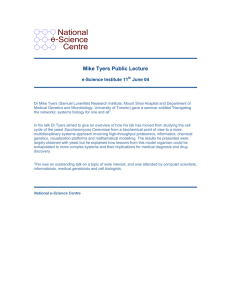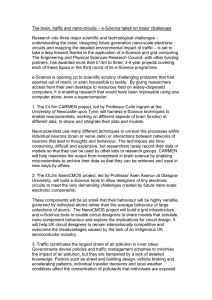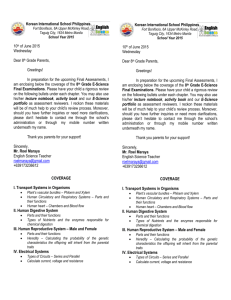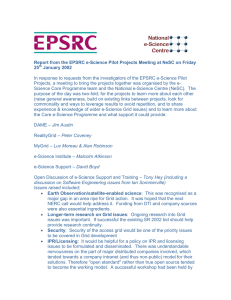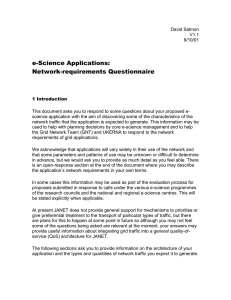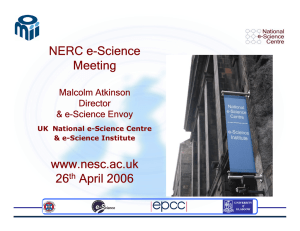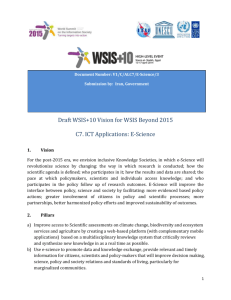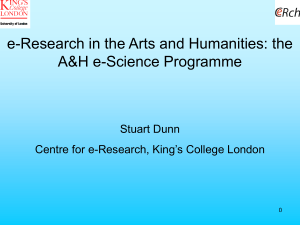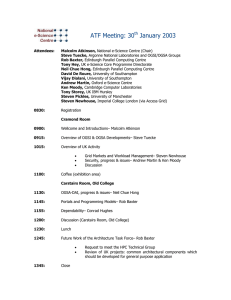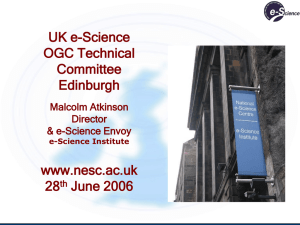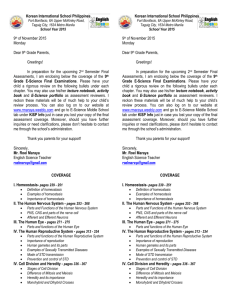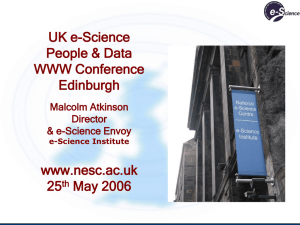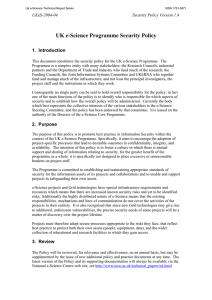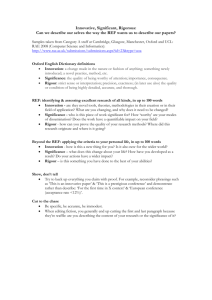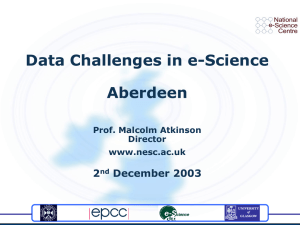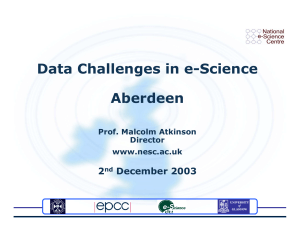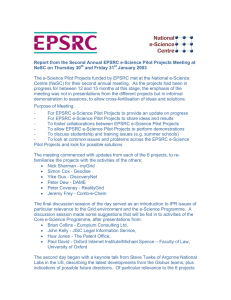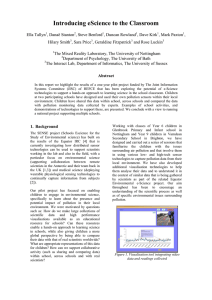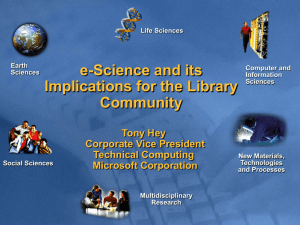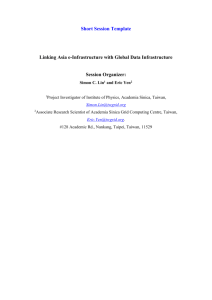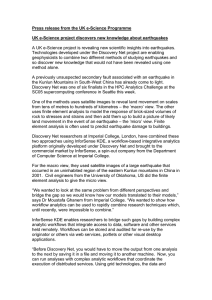ccpe-esciencequarterly
advertisement
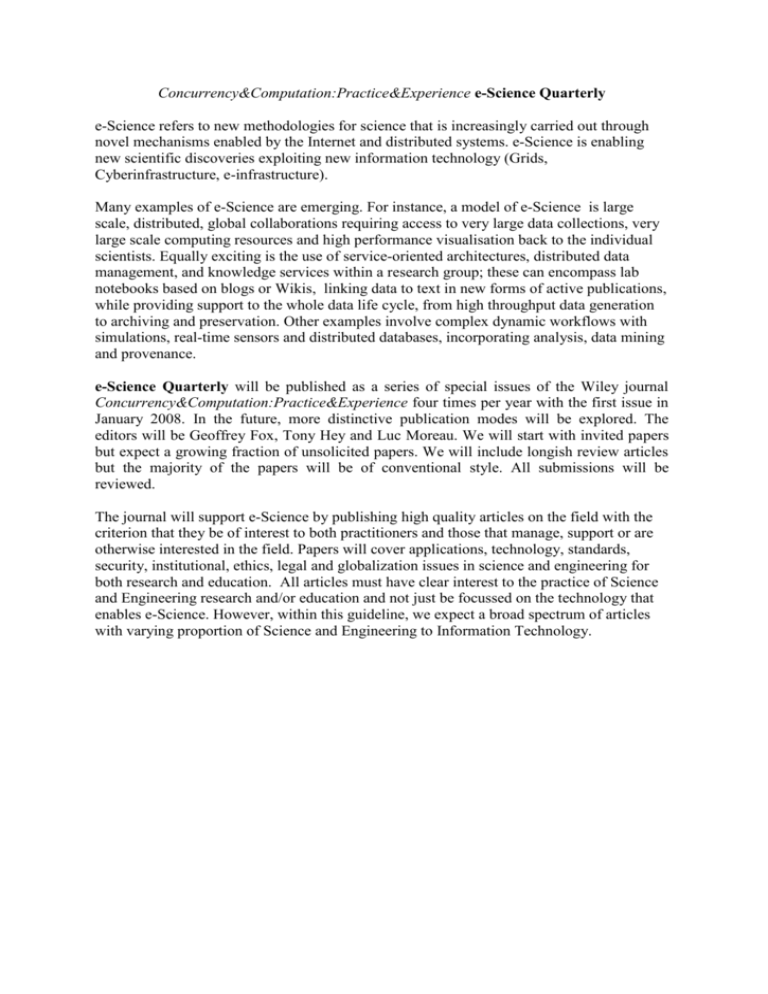
Concurrency&Computation:Practice&Experience e-Science Quarterly e-Science refers to new methodologies for science that is increasingly carried out through novel mechanisms enabled by the Internet and distributed systems. e-Science is enabling new scientific discoveries exploiting new information technology (Grids, Cyberinfrastructure, e-infrastructure). Many examples of e-Science are emerging. For instance, a model of e-Science is large scale, distributed, global collaborations requiring access to very large data collections, very large scale computing resources and high performance visualisation back to the individual scientists. Equally exciting is the use of service-oriented architectures, distributed data management, and knowledge services within a research group; these can encompass lab notebooks based on blogs or Wikis, linking data to text in new forms of active publications, while providing support to the whole data life cycle, from high throughput data generation to archiving and preservation. Other examples involve complex dynamic workflows with simulations, real-time sensors and distributed databases, incorporating analysis, data mining and provenance. e-Science Quarterly will be published as a series of special issues of the Wiley journal Concurrency&Computation:Practice&Experience four times per year with the first issue in January 2008. In the future, more distinctive publication modes will be explored. The editors will be Geoffrey Fox, Tony Hey and Luc Moreau. We will start with invited papers but expect a growing fraction of unsolicited papers. We will include longish review articles but the majority of the papers will be of conventional style. All submissions will be reviewed. The journal will support e-Science by publishing high quality articles on the field with the criterion that they be of interest to both practitioners and those that manage, support or are otherwise interested in the field. Papers will cover applications, technology, standards, security, institutional, ethics, legal and globalization issues in science and engineering for both research and education. All articles must have clear interest to the practice of Science and Engineering research and/or education and not just be focussed on the technology that enables e-Science. However, within this guideline, we expect a broad spectrum of articles with varying proportion of Science and Engineering to Information Technology.
